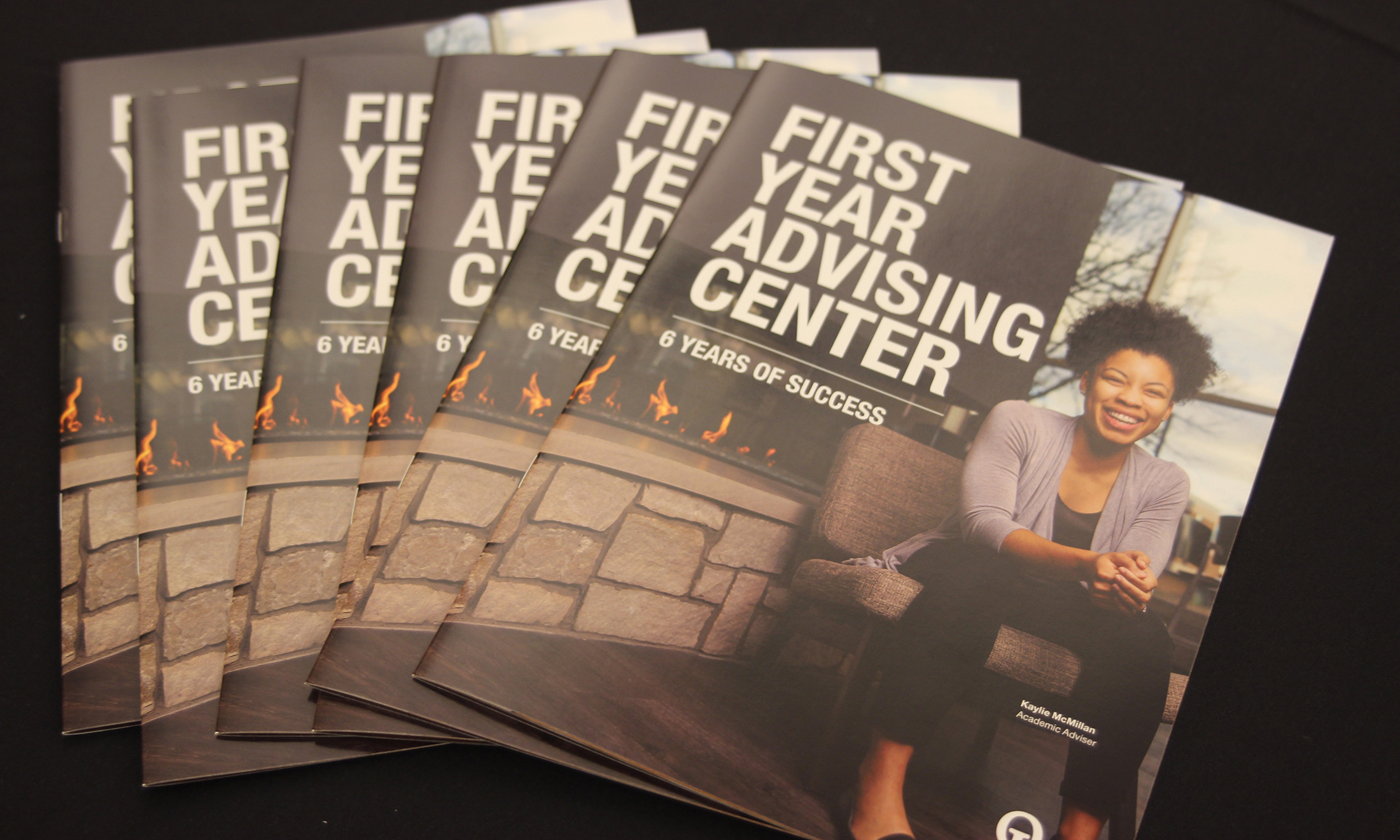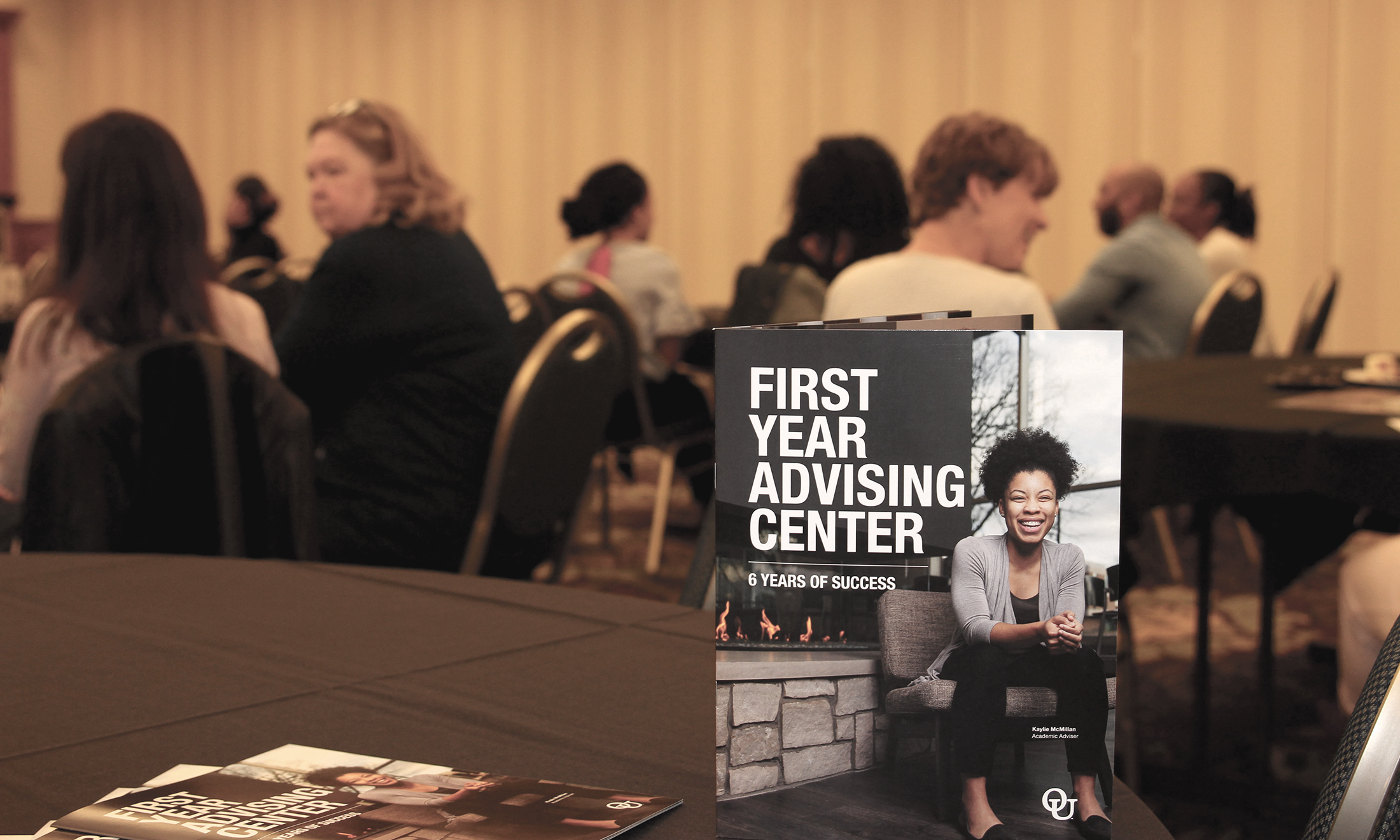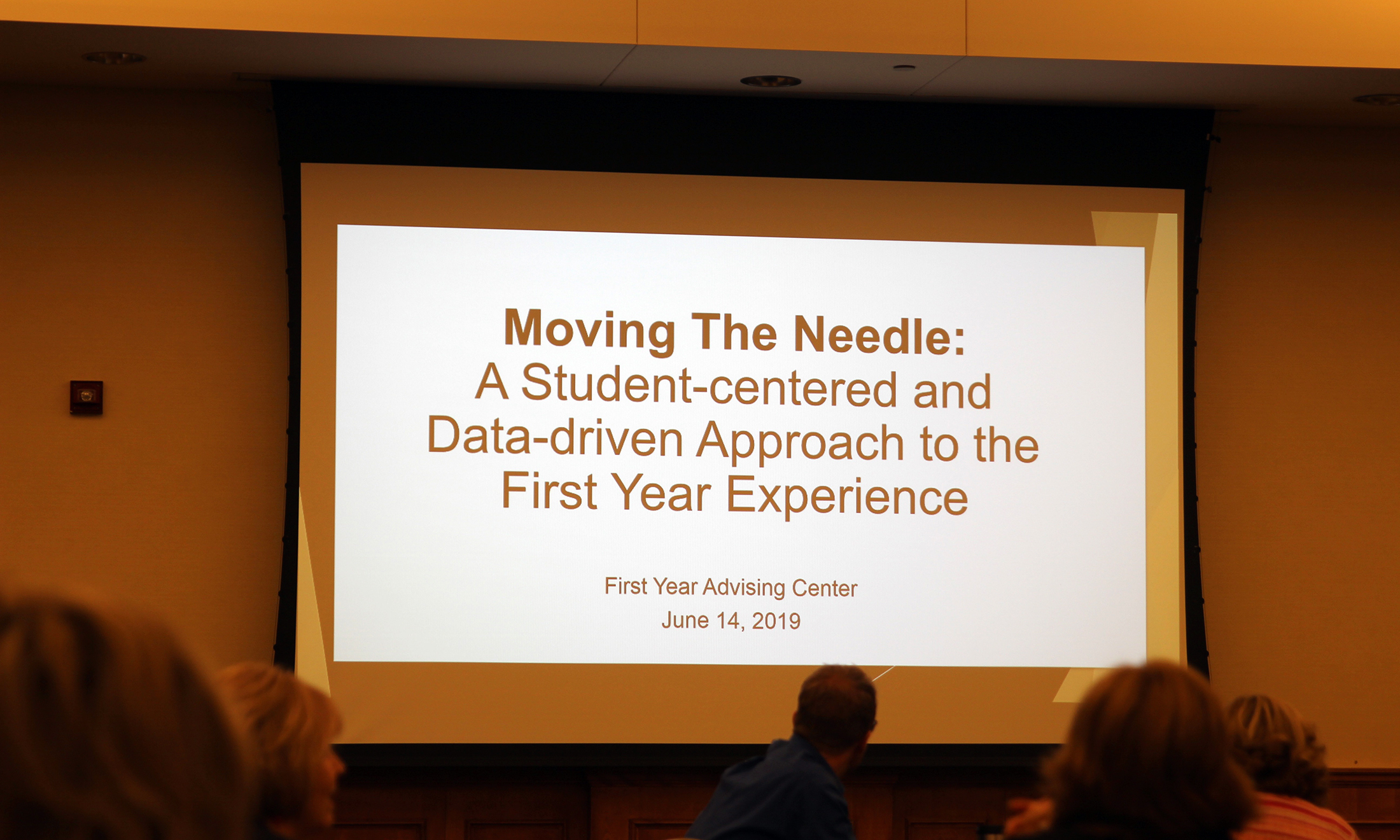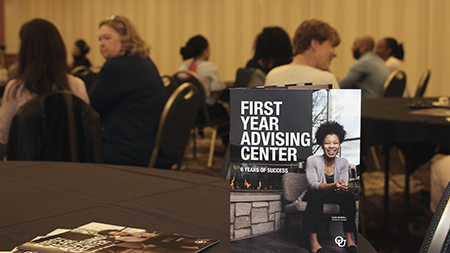- YouTube
- TikTok
First Year Advising Center is helping students succeed
Metrics show FYAC is using a student-centered, data-driven approach to help more students thrive early on at OU




The impact of the First Year Advising Center (FYAC) at Oakland University has resulted in the department’s selection as the 2019 NACADA Outstanding Advising Program.
FYAC earned its NACADA recognition because its advising model has helped drive a significant increase in the first-year student retention rate and led to a major step forward in the percentage of students on track to graduate in four or five years.
 |
Sara Webb, senior director of First Year Success, displays the group's newly printed success booklet |
Some significant numbers since the launch of FYAC include:
- First year student retention moving up to 77 percent, with an ambitious goal of reaching 83 percent in the coming years.
- Students “on track” with at least 28 credits at the end of their first year is now at 66 percent and has jumped nearly 20 percent since the creation of FYAC.
- The six-year graduation rate is at 55 percent, showing there has already been a 12 percent increase in the past seven years, with much of the credit due to FYAC involvement.
Celebrating their success, the group has just released a new booklet chronicling these and other achievements. The booklet is available to anyone visiting the FYAC offices at 121 North Foundation Hall on OU’s campus.
At a recent award celebration luncheon, FYAC staff members shared statistical information they used to develop Oakland’s freshmen academic advising experience concept. In addition, several FYAC team members and current OU students shared personal stories and first-hand accounts about the impact of FYAC.
Now in its seventh year of operation, FYAC was created by Oakland University leaders in 2012 to address the fact that institutional data indicated that nearly 70 percent of Oakland freshmen entered their first year of college without a definitive career path. In addition, data showed that more than 50 percent of OU students who declared a major in their first year ended up changing majors at least once.
Academic advising has changed over the years and when asked about how she thought academic advising would change in the coming years, Senior Director of First Year Success Sara Webb said, “We know communication and technology methods will continue to evolve in the future and we will evolve along with them. However, there is still a very human element to the work we do and we will always make time for face-to-face interaction to help our students succeed.”
Did you know:
A survey of more than 10,000 Oakland University students found that 99.7 percent of students reported that their adviser was approachable; 99.4 percent said that their adviser reviewed specific requirements for their major with them; and 99.2 percent said their adviser helped them establish realistic educational goals.


 June 14, 2019
June 14, 2019